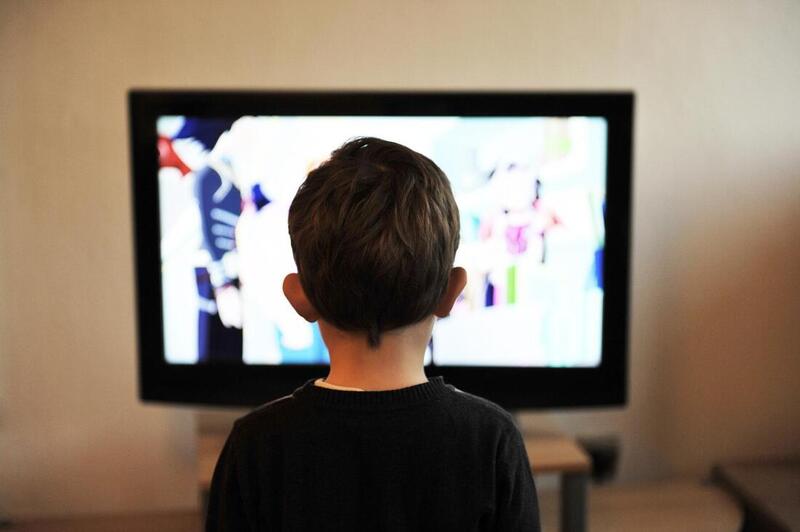The Impact of Increased Screen Time on Children
Pediatric obesity, the excessive buildup of fat on the body, is the most common nutritional disorder that affects children and adolescents worldwide. To put this into perspective, from 1975 to 2016, the global cases of overweight or obese children between the ages of 5 to 19 increased from 4% to 18%. In the United States alone, 1 in 5 children and adolescents are obese. Obesity is a major health concern as it can increase the risk of developing other health conditions, such as heart diseases, diabetes, hypertension, and kidney diseases.
Increased screen time (the time spent watching television or using an electronic device) has contributed to the growing number of obesity cases. Due to screen media exposure, people tend to eat and drink more high-calorie and low-nutrient foods, which can alter people’s eating habits and reduce their length of sleep. As a result of rising screen time, the American Academy of Child and Adolescent Psychiatry set screen time guidelines that include limiting the non-educational screen time for children between the ages of 2 and 5 to about 1 hour per weekday and 3 hours on each day of the weekend.
To promote healthier weight in children, a study used data collected from a different study that was conducted from 2009 to 2012 to observe the effect of parenting screen time on television (TV) viewing time and children’s weight. Families from a specific state in the United States were able to participate in the study if they met the following conditions: have a child between the ages of 2–5 years, have at least one overweight or obese parent, and have the ability to speak and read English. Screen time parenting practices were measured at three time points over thirty-five weeks through a self-report questionnaire. The participating parents belonged to an above average socioeconomic status as most of them had attained higher education and worked full-time jobs with annual incomes of around $50 thousand.
Increased screen time (the time spent watching television or using an electronic device) has contributed to the growing number of obesity cases. Due to screen media exposure, people tend to eat and drink more high-calorie and low-nutrient foods, which can alter people’s eating habits and reduce their length of sleep. As a result of rising screen time, the American Academy of Child and Adolescent Psychiatry set screen time guidelines that include limiting the non-educational screen time for children between the ages of 2 and 5 to about 1 hour per weekday and 3 hours on each day of the weekend.
To promote healthier weight in children, a study used data collected from a different study that was conducted from 2009 to 2012 to observe the effect of parenting screen time on television (TV) viewing time and children’s weight. Families from a specific state in the United States were able to participate in the study if they met the following conditions: have a child between the ages of 2–5 years, have at least one overweight or obese parent, and have the ability to speak and read English. Screen time parenting practices were measured at three time points over thirty-five weeks through a self-report questionnaire. The participating parents belonged to an above average socioeconomic status as most of them had attained higher education and worked full-time jobs with annual incomes of around $50 thousand.
Image Source: jarmoluk
Findings from the study revealed that parental monitoring of children’s screen time correlated with reduced time watching TV, lower body mass index (BMI) scores, and lower waist circumference measurements in children. These results suggest that structure-based practices including monitoring and rule-setting have the potential to positively influence eating habits, improve physical activity, and reduce the risk for obesity. On the other hand, using screen time as a reward or to control behavior in children was associated with an increased BMI.
Parenting screen time can influence children’s health and aid in the prevention of pediatric obesity. Structure-based parenting practices have the potential to be effective if they include demandingness and responsiveness. The various types of screen time need to be further explored to see if there is a difference in results based on screen time specifically related to TV, video games, smartphones, or other electronic devices. Physicians can provide guidance regarding the appropriate use of media for children and the appropriate amount of screen time to set children’s health in a better direction. As pediatric obesity and its health outcomes are of growing importance worldwide, it is increasingly important to consider the factors that could potentially play a role in prevention, such as parenting screen time.
Parenting screen time can influence children’s health and aid in the prevention of pediatric obesity. Structure-based parenting practices have the potential to be effective if they include demandingness and responsiveness. The various types of screen time need to be further explored to see if there is a difference in results based on screen time specifically related to TV, video games, smartphones, or other electronic devices. Physicians can provide guidance regarding the appropriate use of media for children and the appropriate amount of screen time to set children’s health in a better direction. As pediatric obesity and its health outcomes are of growing importance worldwide, it is increasingly important to consider the factors that could potentially play a role in prevention, such as parenting screen time.
Featured Image Source: mojzagrebinfo
RELATED ARTICLES
|
Vertical Divider
|
Vertical Divider
|
Vertical Divider
|






